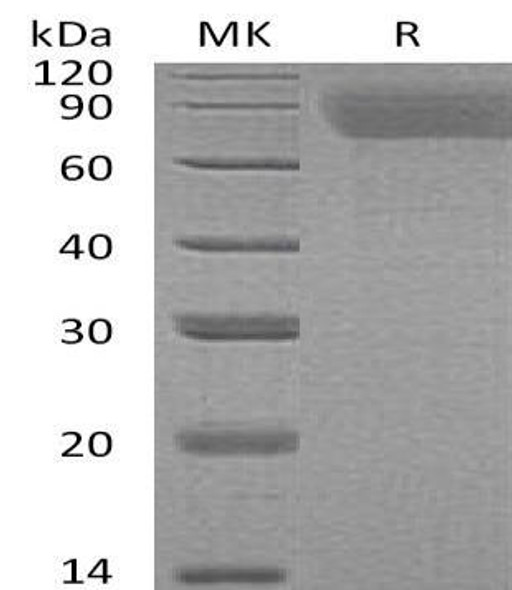Thrombopoietin (Tpo), is a key regulator of megakaryocytopoiesis and thrombopoiesis. It is principally produced in the liver and is bound and internalized by the receptor Tpo R/c_x001E_mpl. Defects in the Tpo_x001E_Tpo R signaling pathway are associated with a variety of platelet disorders . Mature rat Tpo shares 68% and 81% aa sequence homology with human and mouse Tpo, respectively . It is an 80_x001E_85 kDa protein that consists of an N_x001E_terminal domain with homology to Erythropoietin (Epo) and a C_x001E_terminal domain that contains multiple N_x001E_linked and O_x001E_linked glycosylation sites. Tpo promotes the differentiation, proliferation, and maturation of megakaryocytes (MK) and their progenitors . Several other cytokines can also promote these functions but only in cooperation with Tpo . Notably, IL_x001E_3 independently induces MK development, although its effects are restricted to early in the MK lineage . Tpo additionally promotes platelet production, aggregation, ECM adhesion, and activation . These actions, in combination with direct effects on cardiomyocytes, can aid in the recovery of heart function following myocardial infarction . Tpo is cleaved by platelet_x001E_derived thrombin following Arg191 within the C_x001E_terminal domain and subsequently at other sites upon extended digestion . The C_x001E_terminal domain is not required for binding to Tpo R or inducing MK growth and differentiation . Aside from its hematopoietic effects, Tpo is expressed in the brain where it promotes the apoptosis of hypoxia_x001E_sensitized neurons and inhibits neuronal differentiation by blocking NGF_x001E_induced signaling .






